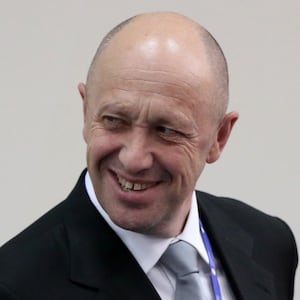Belarusian President Alexander Lukashenko offered a disused military camp to Wagner fighters as part of a deal which ended the group’s armed rebellion against Russian military leaders last month. So far, not one mercenary has so much as been to look at the camp, an official said.
The Soviet-era site near Tsel, about 55 miles southeast of Minsk, was displayed by the Belarusian military to a group of international reporters on Friday. Wagner founder Yevgeny Prigozhin and his recruits who did not want to join up with the Russian Defense Ministry were supposed to move to Belarus after their mutiny unraveled—but the agreement has apparently gone awry.
When asked if anyone from Wagner had even visited the camp, an adviser to the Belarusian defense minister confirmed that they hadn’t. “They have not come, they have not looked,” Leonid Kasinsky told reporters, according to Reuters.
“When the Wagner Group makes a final decision on whether to deploy to Belarus or not, they will see where and how to deploy,” Maj. Gen. Kasinsky added, the Associated Press reports.
On Thursday, Lukashenko said that, contrary to the agreement, Prigozhin isn’t even in Belarus. Instead, he said the warlord was back home in St. Petersburg, with Russian media reporting sightings at his offices in the city. “Where is he this morning? Maybe he went to Moscow,” Lukashenko said. He added that Wagner’s troops were located in “their own” permanent camps, seemingly referring to installations in eastern Ukraine.
Lukashenko also said he planned to discuss the matter further with Russian President Vladimir Putin. On Friday, Putin’s spokesperson Dmitry Peskov dismissed questions concerning Prigozhin’s whereabouts and declined to comment about whether his apparent presence in Russia would break the terms of the deal.
On June 23, Prigozhin announced that his men would move toward Moscow after months of publicly criticizing Russia’s military commanders for their handling of the war in Ukraine. “This is not a military coup,” Prigozhin said at the time. “It is a march for justice.” The following day, he and his troops seized Russia’s military headquarters in Rostov-on-Don, about 125 miles from the Russian capital.
Amid the crisis, Putin delivered an emergency TV broadcast denouncing the “traitors” and promising “action will be taken” in response. Hours later, Lukashenko confirmed he’d brokered a deal between Putin and Prigozhin to bring the rebellion to an end, saying Wagner’s forces would return to Ukraine and Prigozhin would go to Belarus.
The fragile stability between the mercenary force and the Kremlin has teetered ever since, with Russian state television on Wednesday broadcasting images purportedly taken during raids of Prigozhin’s offices and one of his “palaces.” The footage showed bundles of cash, gold bars, and a collection of sledgehammers in an apparent effort to expose the hypocrisy of his corruption claims against the Russian armed forces.






